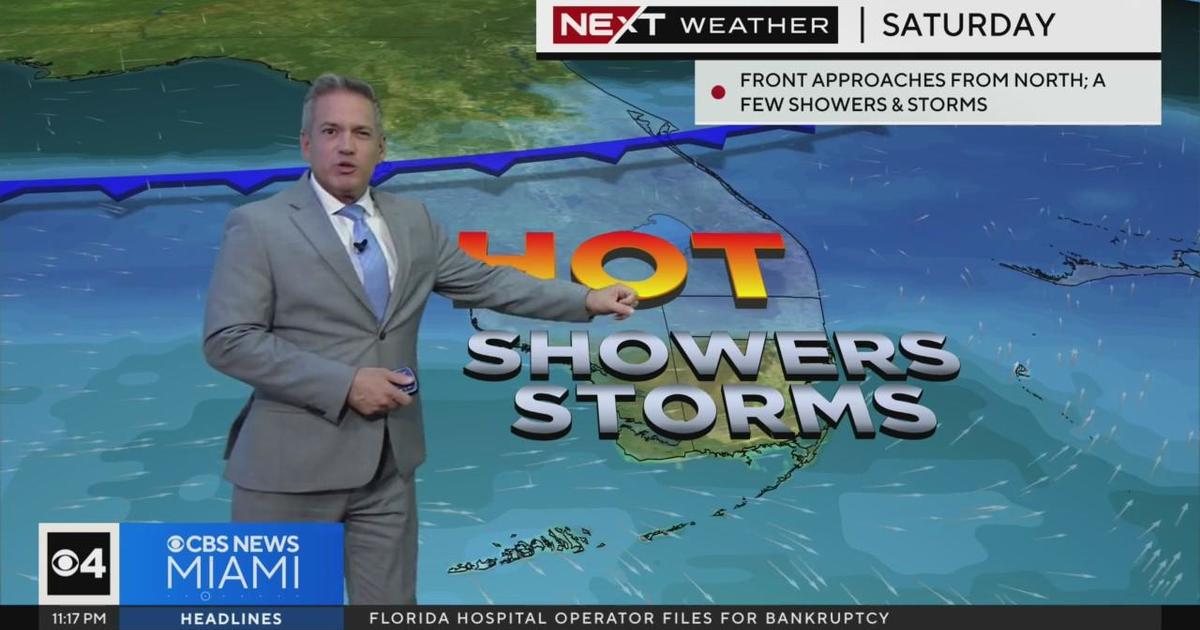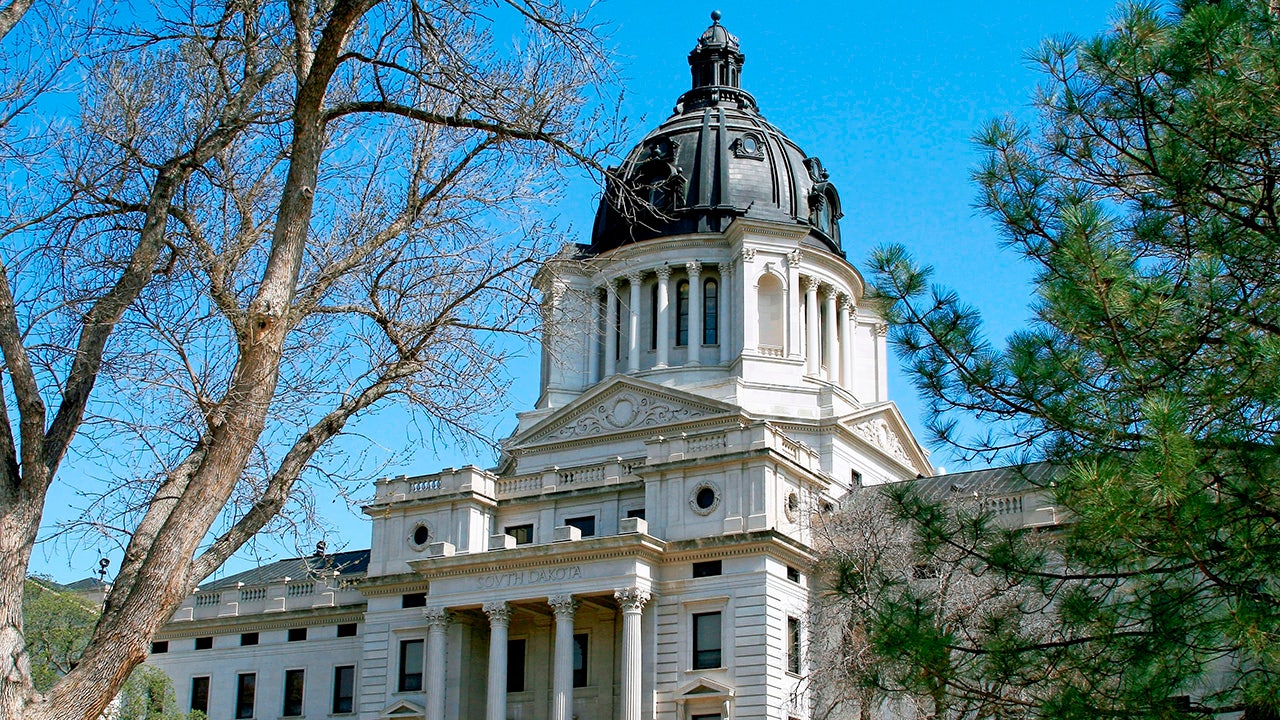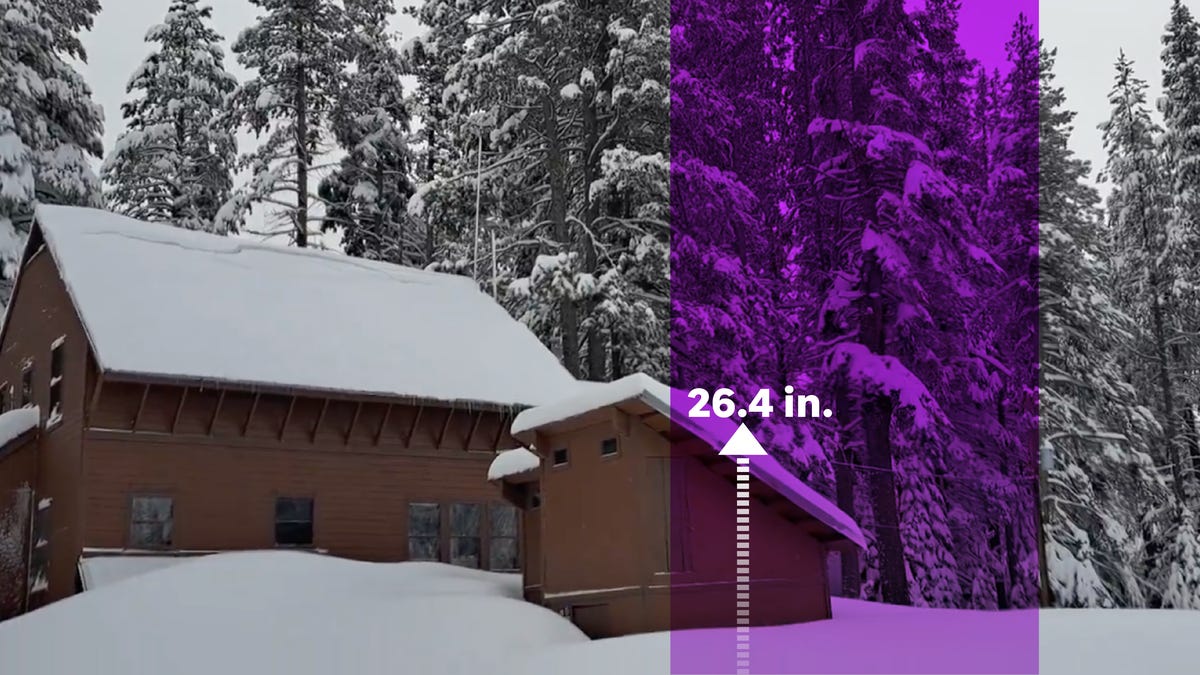Idaho
Can Idaho ‘Force Someone Onto a Helicopter’ as the Standard of Medical Care for Accessing Health-Stabilizing Abortions? – Ms. Magazine

Under bans with no health exception for the pregnant woman, doctors are forced to decide: “Is she sick enough? Is she bleeding enough? Is she septic enough for me to do this abortion and not risk going to jail and losing my license?”
It is challenging to write about the case of Idaho and Moyle v. U.S., which was argued before the Supreme Court on Wednesday. The challenge is not because I am having trouble understanding the parties’ legal arguments. Rather, the difficulty lies in trying to grasp the abject cruelty of the position Idaho has staked out. In a nutshell, the state maintains it is not obligated under the Emergency Medical Treatment and Labor Act (EMTALA) to provide abortions needed to stabilize an “emergency medical condition” because its Defense of Life Act only permits pregnancy terminations when “necessary to prevent the death of a pregnant woman.”
EMTALA is a 1986 federal statute that was enacted to prevent hospitals which receive Medicare funding from refusing emergency care to low-income patients—a practice commonly referred to as “patient dumping.” EMTALA’s patient-protective mandate is simple and clear.
- It requires hospitals to screen patients seeking emergency care and to provide stabilizing medical care to prevent “material deterioration” of the presenting condition through transfer to another facility or discharge.
- As a federal statute, it preempts (takes precedence over) state laws that conflict with this mandate.
Prior to the Court’s decision in Dobbs v. Jackson Women’s Health overturning Roe v. Wade, state abortion laws were constitutionally required to contain both a health and life exception. Accordingly, they were effectively in sync with EMTALA’s health stabilization requirement.
However, in the wake of Dobbs, while most abortion-restrictive states have preserved the health exception, a handful of ban states, including Idaho, no longer permit abortions needed to protect a pregnant person’s health. The U.S. government charges this lack of exception in the law is in direct conflict with EMTALA’s health stabilization mandate—since for “some pregnant women suffering tragic emergency complications, the only care that can prevent grave harm to their health is termination of the pregnancy.”
Incorrectly, Idaho Solicitor General Joshua Turner claimed during oral arguments that “nothing in EMTALA requires doctors to … offer medical treatments that violate state law” by insisting they provide abortions needed to preserve pregnant person’s health.
When pressed by Justice Sonia Sotomayor, Turner admitted there was “daylight” between EMTALA and the Defense of Life Act; however, he nonetheless claimed there was no conflict between them, because as long as a physician performed an abortion based on a “good faith” belief it was necessary to save a patient’s life, they were protected from prosecution.
It strains credibility to think we have gotten to the point where the Supreme Court’s conservative supermajority might greenlight Idaho’s blatant disregard for EMTALA’s health stabilization mandate.
In turn, Solicitor General Elizabeth Prelogar eloquently encapsulated what Justice Sotomayor referred to as the “big daylight” between the two laws:
“In Idaho, doctors have to shut their eyes to everything except death—whereas, under EMTALA, you’re supposed to be thinking about things like: Is she about to lose her fertility? Is her uterus going to become incredibly scarred because of the bleeding? Is she about to undergo the possibility of kidney failure?”
This on-the-ground reality was highlighted by the amicus brief submitted by Idaho-based St. Luke’s Medical Center, which provides a firsthand accounting of the Hobson’s choice faced by emergency departments when treating pregnant patients presenting with a medical emergency.
In short, emergency room physicians are faced with the choice to “terminate a pregnancy where necessary to prevent serious jeopardy to a patient’s health, but they may risk criminal prosecution and revocation of their licenses,” or instead wait until the “risks to the patients’ health become life-threatening.”
Dr. Jim Souza, chief physician at St. Luke’s, captured the quandary of trying to determine when intervention no longer carries the risk of up to five years in prison:
“Is she sick enough? Is she bleeding enough? Is she septic enough for me to do this abortion and not risk going to jail and losing my license? When the guessing game gets too uncomfortable, we transfer the patients out at a very high cost to another state where the doctors are allowed to practice medicine.”
These costs include “delaying care while transport is arranged, and distancing patients from their support networks, including the medical providers they know and trust.”
According to Souza, in the three months since the initial injunction on the application of Idaho’s criminal abortion ban to emergency cases was lifted, six patients were airlifted out of state, compared to only one patient in 2023.
Underscoring the grim reality on the ground, some Idaho physicians are now advising pregnant patients or those trying to become pregnant that it might be advisable to “purchase memberships with companies like Life Flight Network or Air St. Luke’s … to avoid potentially significant costs if they need air transport in an emergency.”

We have been repeatedly hit by the harsh post-Dobbs reality that, at every turn, anti-abortion activists are ready to disregard the lives and well-being of pregnant persons in favor of the unborn. Nonetheless, it strains credibility to think we have gotten to the point where the Supreme Court’s conservative supermajority might greenlight Idaho’s blatant disregard for EMTALA’s health stabilization mandate.
And while it certainly is possible that the conservative justices on the Court are truly invested in resolving the preemption question, there is no doubt but that something else is at stake here—namely, fetal personhood.
Surfacing this concern, Justice Samuel Alito, when questioning Prelogar, offered almost as an aside, “We’ve now heard … an hour and a half of argument on this case, and one very important phrase in EMTALA has hardly been mentioned. Maybe it hasn’t been mentioned at all. That is EMTALA’s reference to the woman’s ‘unborn child.’”
He immediately followed up with a pointed question, asking Prelogar, “Isn’t that an odd phrase to put in a statute that authorizes abortion? Have you ever seen an abortion statute that uses the phrase ‘unborn child’? … Doesn’t that tell us something?”
In fact, the phrase had come up several times during Justice Neil Gorsuch’s questioning of Turner, with regard to the intent behind the 1989 amendment to EMTALA requiring stabilizing healthcare to an unborn child in distress. Both concurred that the “something” was that EMTALA regards the fetus as a co-equal second patient.
As Turner opined, “It would be a strange thing for Congress to have regard for the unborn child and yet also be mandating termination of unborn children.”
Prelogar quickly disposed of the view that EMTALA regards the fetus as a rights-holding person. As she explained when grilled by Alito, Congress amended EMTALA in 1989 to ensure that when a pregnant person seeks emergency care because the fetus is in peril, they will not be turned away, as was often the case, because their life or health was not risk.
However, Alito did not buy this. In line with Gorsuch—suggesting where the conservative majority may land—he asked, “Doesn’t what I read to you [namely, EMTALA’s unborn child provisions] show that the statute imposes on a hospital a duty to the woman certainly, and also a duty to the child?”
Somewhat obliquely returning to the preemption question, he indicated that EMTALA “doesn’t tell the hospital how it is to adjudicate conflicts between these interests and it leaves that to the states.”
Of course, leaving it to the states in this way would give Idaho and other states without a health exception free rein to prioritize the rights of the fetus over those of a pregnant patient who is facing, for example, the potential loss of fertility, or permanent organ damage or the onset of seizures, or hypoxic brain injury.
If Idaho and other abortion ban states are allowed to continue to play with women’s lives, unchecked by the Court, expect (as Prelogar warned) “tragedy upon tragedy.”
Up next:
U.S. democracy is at a dangerous inflection point—from the demise of abortion rights, to a lack of pay equity and parental leave, to skyrocketing maternal mortality, and attacks on trans health. Left unchecked, these crises will lead to wider gaps in political participation and representation. For 50 years, Ms. has been forging feminist journalism—reporting, rebelling and truth-telling from the front-lines, championing the Equal Rights Amendment, and centering the stories of those most impacted. With all that’s at stake for equality, we are redoubling our commitment for the next 50 years. In turn, we need your help, Support Ms. today with a donation—any amount that is meaningful to you. For as little as $5 each month, you’ll receive the print magazine along with our e-newsletters, action alerts, and invitations to Ms. Studios events and podcasts. We are grateful for your loyalty and ferocity.

Idaho
Idaho gas prices drop four cents this week – East Idaho News

The following is a news release from AAA Idaho.
BOISE – For the first time since early February, Idaho drivers are seeing a welcome sight at the gas pump – prices that are cheaper than a week ago.
According to AAA, today’s average price for a gallon of regular in the Gem State is $3.88, which is four cents cheaper than a week ago, but 11 cents more than a month ago and 13 cents more than a year ago. The national average currently sits at $3.65 per gallon, which is about a penny less than a week ago, but six cents more than a month ago and 11 cents more than a year ago.
Idaho continues to rank 9th in the country for most expensive fuel behind California ($5.35), Hawaii ($4.80), Washington ($4.68), Nevada ($4.53), Oregon ($4.47), Alaska ($4.38), Arizona ($4.03), and Illinois ($3.90). But 42 of the 50 states saw price drops this week, with the cheapest fuel once again in Mississippi at $3.11 per gallon.
“This winter, it was a lot friendlier on our wallets to fill up, with Idaho pump prices reaching their lowest point in nearly three years. But after several weeks of price hikes, the past few weeks have been a bit of a lull,” says AAA Idaho public affairs director Matthew Conde. “Unfortunately, we expect the recent savings to be short-lived. In the run-up to Memorial Day, we anticipate strong demand that could easily push gas prices the other direction.”
According to the Energy Information Administration, gas demand rose this week by just 200,000 barrels per day to 8.62 million b/d, and stock levels also dipped slightly.
While lower inventory levels and higher demand would normally nudge gas prices higher, the cost of crude oil is now below the $80 mark, helping keep prices under control. Today, the West Texas Intermediate benchmark for crude is trading near $78 per barrel, which is $4 less than a week ago and $9 less than a month ago, but $6 more than a year ago.
“The EIA reports that domestic crude production is about 800,000 barrels per day higher than a year ago, imports are up 400,000 b/d, and exports are down 800,000 b/d. That’s helping the supply chain immensely,” Conde said. “And our regional refineries are currently producing at 88% of capacity, slightly edging production in other parts of the country for the first time in several weeks.”
The U.S. government recently announced plans to allow the sale of E15 fuel (containing up to 15% ethanol) throughout the summer driving season, with the intention of shoring up prices and supplies. With an effective date of May 1, it’s too early to tell how much of an effect the waiver will have on pump prices throughout the summer.
Here’s a look at Idaho gas prices, as of May 6:
Boise – $3.93
Coeur d’Alene – $3.83
Franklin – $3.85
Idaho Falls – $3.80
Lewiston – $3.77
Pocatello – $3.91
Rexburg – $3.87
Twin Falls – $3.87
For more information, click here or visit the AAA Fuel Price Finder.
=htmlentities(get_the_title())?>%0D%0A%0D%0A=get_permalink()?>%0D%0A%0D%0A=htmlentities(‘For more stories like this one, be sure to visit https://www.eastidahonews.com/ for all of the latest news, community events and more.’)?>&subject=Check%20out%20this%20story%20from%20EastIdahoNews” class=”fa-stack jDialog”>
Idaho
The Idaho Constitution strictly prohibits public funds for religious schooling

Legislators who insist on using taxpayer money to pay for private schooling consistently claim that their so-called “school choice” schemes would not violate the Idaho Constitution by making public funds available for religious education. They are dead wrong. Article IX, Section 5 of that revered document, sometimes called the “Blaine Amendment,” emphatically states that no public funds shall ever be used “to help support or sustain any school, academy, seminary, college, university or other literary or scientific institution, controlled by any church.”
Some people, who simply don’t know what they are talking about, falsely claim the Blaine Amendment has been overruled by the United States Supreme Court. Quite to the contrary, the Supreme Court has decided two cases dealing with the Blaine Amendment and neither has overruled it. In the latest case, Carson v. Makin, Chief Justice John Roberts wrote: “A State need not subsidize private education. But once a State decides to do so, it cannot disqualify some private schools solely because they are religious.”
What the Court was saying is that if, and only if, a state establishes a program to provide taxpayer money for private schooling, it must also provide program money for religious schooling. Some politicians are trying, for the first time in Idaho history, to force Idaho taxpayers to pay for private schooling, which would then open the back door to require that taxpayers also pay for religious schooling. So-called “school choice” legislation is a workaround to evade and subvert the Constitution. Whether the use of public funds for private schooling is–by means of a tax credit or school voucher or some other form–it is still a raid on the public treasury in violation of the Blaine Amendment.
A dispute over the Blaine Amendment arose during a candidate forum held by the Greater Idaho Falls Chamber of Commerce last month. Representative Wendy Horman, a strong advocate of using taxpayer money to pay for private education, claimed the Blaine Amendment had been voided by the Supreme Court. Representative Stephanie Mickelsen correctly responded that it is still the law of Idaho. She said, “When you take public tax dollars, and you give them to parochial and private schools,” there is no accountability for the spending. She pointed out that school choice schemes have become budget busters for many, many states.
No matter what you call a school choice plan, it is still a violation of the Idaho Constitution if it results in public money being used for religious instruction. The Legislature has consistently violated its constitutional obligation to adequately fund the public school system, both for instructional purposes and for construction and maintenance of school buildings. Thanks to the good work of pro-education legislators, progress was made this year in addressing both deficiencies. This is not the time to require taxpayers to shoulder the additional burden of financing private and religious schooling.
It should not go unnoticed that one of the most vociferous interest groups pushing for school choice programs is the Idaho Freedom Foundation (IFF). That organization is dedicated to the proposition that the State has no business educating our kids. The IFF’s avowed plan is to do away with public schools. A school choice plan would certainly be a big step in that direction.
Other powerful out-of-state interests have spent heavily to force budget-busting school choice programs on the Gem State. Idaho Business for Education recently disclosed that a Texas-based organization, American Federation for Children (ADF), together with two other dark-money interest groups, spent a total of $134,148 unsuccessfully promoting school choice during this legislative session. ADF has vowed to defeat legislators who opposed these schemes and is rewarding those who bent to its will. Voters should take heed and vote for those like Mickelsen who support our Constitution.
Idaho
Idaho Democratic Party doubles legislative candidate numbers in the face of GOP supermajority • Idaho Capital Sun

For Joseph Messerly, a Soda Springs business owner and a member of The Church of Jesus Christ of Latter-day Saints, the decision to run for state office started with one issue: Idaho libraries.
His mother is a children’s librarian, and she even testified in opposition to one of the early iterations of this year’s legislation meant to restrict children’s access to library material, which ultimately passed the Legislature under House Bill 710 and was signed into law in April by Idaho Gov. Brad Little.
Messerly said one of the concerns he saw local librarians, like his mother, talk about was the impact that it was going to have on children in rural Idaho.
“We’re on a four-day school week in Soda Springs, and we can have up to 30 kids in the library on Fridays,” he told the Idaho Capital Sun. “With some of their parents at work, kids are waiting at the library before the doors even open to get out of the cold or to have somewhere to work on school projects.”
Messerly, a Democratic candidate, is running for election for the first time to the Idaho House of Representatives to represent District 35, Seat A. The district is located in eastern Idaho and includes Bear Lake, Caribou and Teton counties as well as a portion of Bonneville County. Messerly is running unopposed in the May 21 Democratic primary election. He will run against incumbent Rep. Kevin Andrus, R-Lava Hot Springs, in the Nov. 5 general election.
Efforts to reach Andrus were unsuccessful.
“The fact that librarians aren’t going to be able to help them in the way they need to for fear of civil or for liable actions isn’t OK,” Messerly said. “We need to make sure that all voices are being heard at all times, and Idaho values really truly line up with the Idaho Democratic Party at the end of the day.”
Messerly has entered Idaho’s 2024 legislative races along with 86 other Democrats who have said they are driven by concerns related to legislation affecting library materials, reproductive rights and public education. This surge nearly doubles the amount of democratic candidates running for legislative office in comparison from 2022.
More candidates means more choices for Idaho voters, Boise State professor says
Jaclyn Kettler, a political scientist at Boise State University has noticed the increase in Democratic candidates, particularly compared to the field of 2022 candidates.
“It is something that I had noticed and I think it reflects the hard work that the Democratic Party has done in recruiting candidates,” Kettler said.
Kettler said having more candidates means more choices for voters, which can be a good thing regardless of which political party they support.
“It is important for a few reasons,” Kettler said. “It helps build up a base, and it helps turn out more voters. If you don’t have candidates on the ballot, it’s hard to demonstrate how much support you might have. But it is also important to have contested elections in more general ways. Having contested elections helps keep our elected officials more accountable through conversations about what the incumbent has done or hasn’t done. It can bring opportunities for voters to express the types of issues or policies they would like to see their representatives work on, and it can also get more citizens participating and engaged with more campaign activity happening.”
Kettler said a fuller field of candidates may also give Idahoans insights in how the state has changed since legislative and congressional districts were redrawn following the 2020 census.
“Because we didn’t see many Democrats on the ballot in 2022, we haven’t seen how our increasing population – or population growth – has affected some districts,” Kettler said. “Voter registration data indicates a lot of Republicans are moving to the state, but do we see some districts become competitive that previously weren’t? Or maybe districts that have previously been competitive won’t be as competitive because of it.”
Even with the large increase in Democratic candidates this year, Kettler doesn’t expect a big shift in the balance of political power. Democrats in Idaho have history, numbers and lots of money working against them.
Republicans have held a supermajority in both chambers of the Idaho Legislature since the 1992 general election.
Republicans have won every statewide office since Democrat Marilyn Howard was re-elected superintendent of public instruction in 2002.
‘We’ve lost so much’: Idaho Democratic chairwoman says more is at stake this election
This year, there is at least one Democratic candidate in all 35 legislative districts in Idaho.
Candidate filings show:
- For the Idaho House of Representatives, there are 59 Democratic candidates running in comparison to 32 in 2022.
- For the Idaho Senate, there are 28 candidates running in comparison to 13 in 2022.
Idaho Democratic Chairwoman Lauren Necochea said in a press release that Idaho’s Democratic candidates are parents, teachers, nurses and small business owners who stepped up as the Idaho Republican supermajority “descends into extremism.”
“These Democratic candidates are running because they cannot accept the loss of our reproductive freedoms and the exodus of doctors from our state, they cannot accept relentless attacks on our libraries, and they will not accept the selling out of our public schools to costly voucher schemes,” she said in the release.
Multiple efforts to reach Idaho Republican Party Chairwoman Dorothy Moon were unsuccessful. Moon also did not respond to a list of questions that a reporter from the Idaho Capital Sun sent her via email on May 1.
In a phone interview, Necochea told the Sun that the Democratic Party made thousands of phone calls to recruit prospects across Idaho. Another reason the party was able to recruit more candidates than in the past is because the party has grown its resource base, she said, even receiving funding from former Idaho Republicans.
“We’ve lost so much, so the will to step up and fight back is growing,” Necochea said. “We can’t let things slide anymore. We’ve lost too much already, and we need to work to get our freedoms back.”
GET THE MORNING HEADLINES DELIVERED TO YOUR INBOX
‘I have to step up’: North Idaho nurse running as Democratic candidate
Inside the halls of Post Falls High School, you’ll find class portraits of Loree Peery, along with photos of her grandparents, parents, aunts, uncles and cousins. The sixth generation Idahoan moved to California for 20 years before moving back to the Gem State in 2006 and settling in Spirit Lake.
“When I moved back, man, my state had changed,” she told the Sun, adding that she had always been involved in Idaho’s Democratic Party.
Peery never saw herself running for office until the representative in her district, Rep. Heather Scott, R-Blanchard, presented a bill to expand the state’s cannibalism law this session.
“I kept thinking, there’s got to be someone running against her, but there wasn’t,” Peery said. “I was like, that’s it. I have to step up. So that’s what I’m doing. I’m not a politician; I’m a nurse.”
Peery is running unopposed in the May 21 Democratic primary election. In November, she will run against Scott in the general election. Scott has served as a member of the Idaho House of Representatives since 2015. She is the co-chair of the Idaho Freedom Caucus, a group of Idaho’s most conservative legislators who have championed legislation such as legally redefining gender and sex, protecting public workers from having to identify people by their preferred pronouns and codifying procedures for libraries to follow if patrons request an item’s relocation.

Scott ran unopposed in the 2022 general election. She did not respond to the Sun’s questions about how an opponent impacts her campaign strategy, but she did respond to a question about why she thinks there are more Democrats running this election.
“I believe we are seeing so many Democratic candidates running for office to provide cover for the Democrats they have running as Republicans in the primary,” Scott told the Sun in a text. “This is the next phase for the Gem State heist.”
Supreme Court justices appear split over whether to protect abortion care during emergencies
As a nurse, Peery said reproductive rights are her top concern, especially as the U.S. Supreme Court is set to decide if Idaho’s abortion law violates the Emergency Medical Treatment and Labor Act. Also known as EMTALA, the federal law prohibits hospitals from refusing to help patients that seek emergency treatment if they are unable to pay for the services.
The U.S. Department of Justice sued the state of Idaho for its strict abortion law that provides an exception to save a patient’s life, but not to preserve a patient’s health. Without health exceptions, Idaho doctors have sent pregnant patients needing stabilizing treatment to out-of-state clinics where abortion is accessible, States Newsroom reported.
Last month, U.S. Solicitor General Elizabeth Prelogar, who is from Idaho, argued to the U.S. Supreme Court that without the ability to immediately treat a pregnant patient with an emergency medical condition in Idaho, a person’s bodily functions, including their ability to have children in the future, could significantly be affected.
“The fact that EMTALA is under threat terrifies me,” Peery said. “I was an operating room nurse for over 40 years, and I know what can happen to women when pregnancies go bad, and it’s really scary and dangerous. The fact that our law is so vague that physicians don’t know what to do and are afraid of being sued is really scary to me.”
Reproductive rights a top issue for Democratic candidates
Like Peery, Julia Parker, the Democratic candidate from Moscow running in District 6, said reproductive rights is also her top concern.
“As a nurse, you really get a view of what people are struggling with, and how difficult health care systems and personal decisions can be,” she told the Sun. “Whether that is a pregnancy decision, or to spend money at a hospital, those decisions are so deeply personal and complicated. There’s no way the Legislature should be the ones making those kinds of decisions for people.”
This is her first time running for state office, but Parker has been involved in local politics since 2021 as a Moscow City Council member.

“I just really love Idaho, and I think that we just deserve better representation than we have,” she said, adding that public education and health care are issues that inspired her to run. “I think it’s just really important for regular people like me to stand up and run for office.”
Parker is running unopposed in the May 21 primary election. She will run against the winner of the Republican primary election between incumbent Sen. Dan Foreman, R-Moscow, and GOP challenger Robert Blair, R-Kendrick.
Blair is a fourth generation Idahoan and farmer. He told the Sun he said is running because he is concerned about the direction of the Idaho Republican Party. The top three issues that inspired him include local control, agriculture and infrastructure.
Blair substituted for former Sen. Dan Johnson in 2021 in the Idaho Legislature, and has experience voting on bills related to abortion, education and libraries. He said he is not sure why there are more Democrats running in this election than in 2022, but he said those are the issues that “separate the Republican and Democrat party.”
“I read every single bill and voted on the bill on its merits and what it’s going to do to the people in my district,” he said. “That’s how I approach things. I don’t know how I’ll vote on a bill until that bill is in front of me.”
Blair ran in the 2022 election, but lost against Foreman. Right now he said he is focused on the primary election and not his Democratic opponent.
Foreman did not respond to the Idaho Capital Sun’s request for comment.
Mary Shea, a Democratic candidate running for election to the Idaho House of Representatives to represent District 29, seat A, has also served as a Senate substitute.
In the recent legislative session, she substituted for Sen. James Ruchti, D-Pocatello, and was outspoken in her opposition to legislation that changed Idaho’s legal definition of sex and gender, and legislation that protects public employees from punishment if they choose to misgender someone.
Shea has a background in law, and she said she felt compelled to run when in September 2021, the U.S. Supreme Court allowed Senate Bill 8, the Texas law permitting civil suits against abortion providers after approximately six weeks of pregnancy, to go into effect. Idaho now has a similar law that lets the family members of a person who had an abortion seek civil penalties of at least $20,000 from a provider. That ruling preceded the ultimate Dobbs decision in June 2022.
This year will be her second time running for the same office. In 2022, Shea ran against Rep. Dustin Manwaring, R-Pocatello, losing by about 640 votes. Shea is running unopposed in the May 21 Democratic primary election, but will again run against Manwaring in the Nov. 5 general election.
Manwaring said his experience, his Republican values and his ability to work with both political parties differentiate him from his opponent.
“What makes me different is while I believe in and strive to uphold the traditional values of the Idaho Republican Party, I also try to find a middle ground on issues and that means working with all sides of my party and across party lines to solve problems,” Manwaring said. “I believe it is a winning ingredient for a legislative district like mine. District 29’s leadership is comprised of both parties, and I have served as the sole Republican representative in this district since I was first elected in 2016.”
Shea said she is concerned that Republicans are “not allowed to think for themselves anymore,” adding that she is also concerned about public education and efforts to fix school maintenance issues and attempts to create school vouchers.
“The fastest and best way to turn things around in Idaho is to get more good Democrats in the seats,” Shea said.
Manwaring has taken notice of the increase in Democratic candidates filing for legislative offices this year, but he doesn’t think the increased number of candidates will flip any seats in the Idaho Legislature or shift the balance of power away from the Republican supermajority.
According to data obtained from the Idaho Secretary of State’s Office, the breakdown of candidates running in the general election for the Idaho Legislature has shifted over the years, for example:
- 2018: 102 Republicans, 61 Democrats
- 2020: 101 Republicans, 56 Democrats
- 2022: 105 Republicans, 45 Democrats
In the 2024 primary, there are 158 Republican candidates and 87 Democratic candidates running, according to candidate filings on the voteidaho.gov.
“My take on the numbers of candidates filing this year is the R’s are about average, or down very slightly, and the D’s have recruited substantially more candidates than usual to appear on the general election ballot,” Manwaring said. “I do not believe this will translate into more real competition in November because it does not change the demographic of electors who are likely to vote in each of the legislative districts.”

“Of course, there are always exceptions and if one party does not field a good candidate and there is an alternative available it is possible the race becomes more competitive,” Manwaring added. “I do not see this as likely to happen in any of the districts in Idaho that have not been historically competitive between the two major parties. I also believe the districts are getting more set in the Democrat ones being more solid blue and the Republican ones being more solid red as our state continues to add population with much of the migration coming into rural Idaho being conservative voters.”
GET THE MORNING HEADLINES DELIVERED TO YOUR INBOX
-

 News1 week ago
News1 week agoBoth sides prepare as Florida's six-week abortion ban is set to take effect Wednesday
-

 Politics1 week ago
Politics1 week agoColumbia University’s policy-making senate votes for resolution calling to investigate school’s leadership
-

 Politics1 week ago
Politics1 week agoGOP Rep. Bill Posey won't seek re-election, endorses former Florida Senate President as replacement
-

 World1 week ago
World1 week agoBrussels, my love? MEPs check out of Strasbourg after 5 eventful years
-

 World1 week ago
World1 week agoRussian forces gained partial control of Donetsk's Ocheretyne town
-

 Politics1 week ago
Politics1 week agoHouse Republicans brace for spring legislative sprint with one less GOP vote
-

 World1 week ago
World1 week agoAt least four dead in US after dozens of tornadoes rip through Oklahoma
-

 Politics1 week ago
Politics1 week agoAnti-Trump DA's no-show at debate leaves challenger facing off against empty podium















